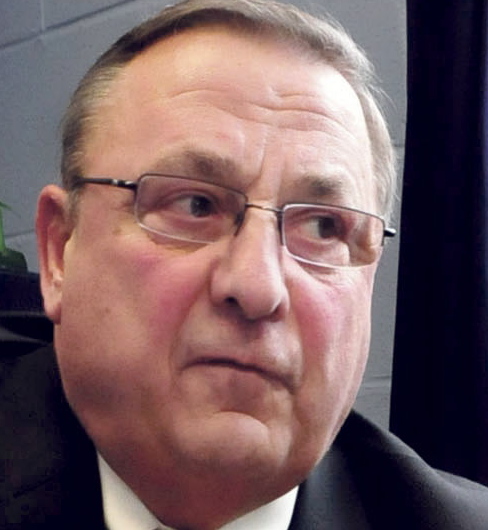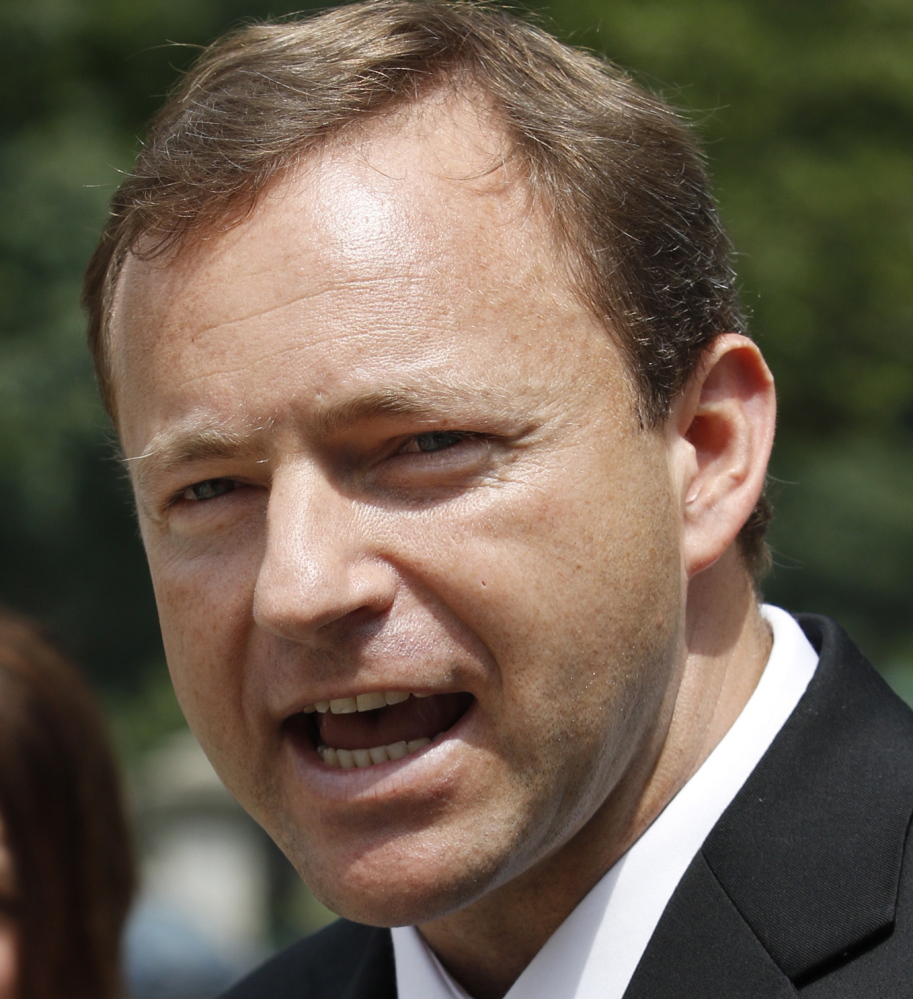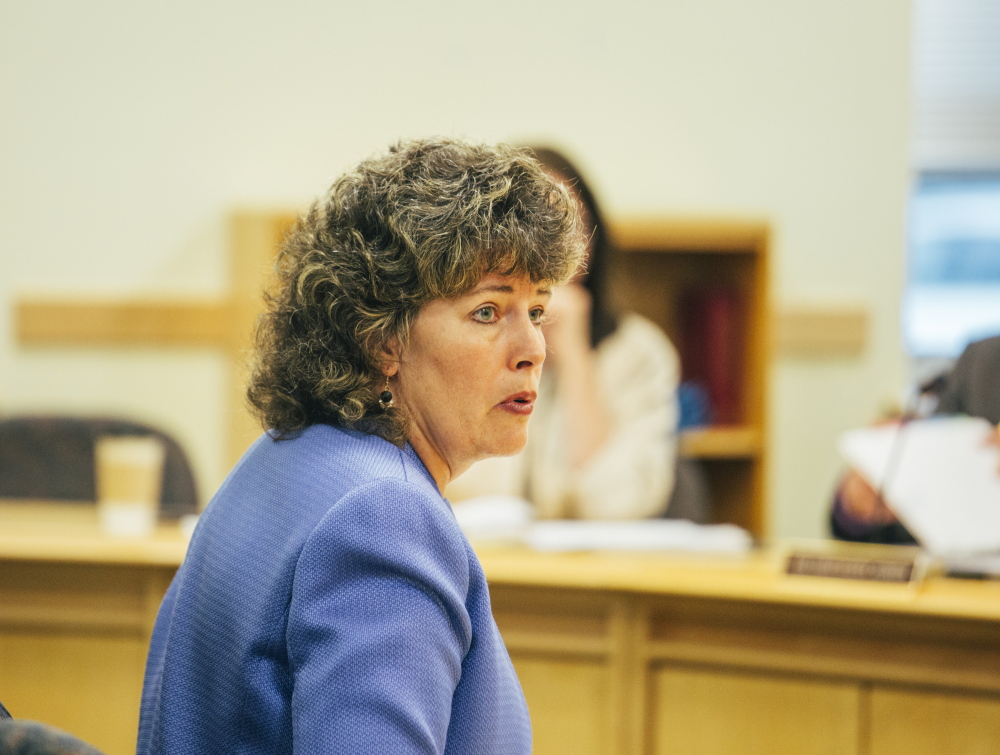The Legislature’s watchdog agency will present a report Tuesday laying out the details of Gov. Paul LePage’s threat to pull state funding from a private school in Fairfield unless it rescinded a job offer to Democratic House Speaker Mark Eves to become its next president.
The report by the Office of Program Evaluation and Government Accountability has been eagerly awaited by LePage critics, who see it as laying the groundwork for impeachment proceedings. However, the report will make no determination of wrongdoing.
It will likely focus less on the dispute between Eves and LePage and more on the sequence of events within the Department of Education, which is responsible for disbursing the $530,000 in annual funds to Good Will-Hinckley that LePage threatened to withhold. The school, which operates a charter school known as the Maine Academy of Natural Sciences, named Eves as its president June 9 but rescinded the offer June 24, after LePage complained that Eves was a poor choice for the job because of a perceived lack of qualifications and his record of opposition to charter schools. The governor is also believed to have sent a separate handwritten note to the school’s board chairman, but the note has not been made public and its message is unknown.
OPEGA Director Beth Ashcroft said the report will focus on the money that the governor threatened to withhold from Good Will-Hinckley and what happened within the department over the period in which LePage was pressing the school to fire Eves. The report will be submitted Tuesday morning to the Legislature’s Government Oversight Committee, which directs OPEGA’s activities.
Ashcroft would not identify who OPEGA interviewed during the inquiry. The agency sometimes keeps its witnesses confidential in order to encourage cooperation. She also declined to say whether OPEGA interviewed staff within the governor’s office.
Asked whether the LePage administration cooperated with the inquiry, Ashcroft said: “I’ll just say we got the cooperation that we expected to get. If the committee somehow feels that we haven’t done a thorough enough job, or weren’t able to reach all the subjects that they want to discuss, then I’ll be discussing that with them. But we feel we’ve reached all the bases.”
The oversight committee voted unanimously July 1 to initiate the probe. Four lawmakers, including Sen. Tom Saviello, R-Wilton, requested the inquiry, expressing concerns that LePage had exceeded his authority by threatening to pull the school’s funding.
Cynthia Montgomery, the governor’s chief legal counsel, has said that OPEGA doesn’t have the authority to investigate the governor.
“The governor and the exercise of his discretionary executive power are simply not subject to OPEGA’s jurisdiction and/or oversight,” Montgomery wrote. “If members of the Legislature wish to ‘investigate’ the governor, they should look to the Constitution for the authority to do so.”
Ashcroft said the probe is within OPEGA’s jurisdiction, a conclusion backed by Assistant Attorney General Linda Pistner, who provides legal advice to the agency. Ashcroft said the report will lay out the facts associated with the funding threat, but nothing else.
“It is not within our scope to make any conclusions, judgments or observations about whether actions taken by any party, including the governor, are within the scope of his particular authority or not,” she said.
Rep. Chuck Kruger, D-Thomaston, co-chairman of the oversight committee, said he isn’t expecting many surprising revelations in the report. However, it could provide the committee, or the attorney general, with baseline information for a deeper inquiry.
“I think most of what’s going to be in the report we already know. I expect that it will be a timeline-type approach with an organization of facts the way they haven’t been to date,” Kruger said. “It will give us a perspective of what happened, but we’re not in the business of making judgments or taking action. We’re fact-finders and that’s what it’s going to be.”
He added, “I think there’s some public expectation that there’s going to be some bombshell or amazing event that’s going to drive him out of office. I just don’t think that’s going to be the case.”
The prospect of impeachment has swirled ever since Good Will-Hinckley rescinded its offer to pay Eves $120,000 annually to head the school. Eves has said that the school’s board told him before it withdrew its offer that the governor had threatened to pull its state funding unless it fired him. The controversy rocked the State House as the Legislature completed a testy legislative session marked by repeated confrontations with LePage over the state budget, income tax cuts and other volatile issues.
Impeachment of LePage could face long odds in the Legislature, which is divided between the Democrat-controlled House of Representatives and the Republican-controlled Senate. While LePage alienated Senate Republicans, including President Micheal Thibodeau, by attacking them for not supporting his proposed budget, it’s unclear whether enough Republicans would vote to remove him from office.
Findings in the report could also be used in Eves’ court complaint against the governor, even though that action is entirely separate from the OPEGA inquiry. Eves filed a civil lawsuit against LePage on July 30.
“Acting out of personal rage, vindictiveness and partisan malice, Gov. Paul LePage blackmailed a private school that serves at-risk children into firing” Eves, says the complaint, in which Eves accuses the governor of violating his First Amendment rights.
LePage has acknowledged threatening to pull the school’s funding, saying Eves, a longtime opponent of charter schools, wouldn’t act in Good Will-Hinckley’s best interests. The governor has compared his intervention to stepping into the middle of a domestic violence dispute. He also has described Eves as “a plant, from the unions, to destroy charter schools. … I believe that’s what his motive is.”
John Moore, chairman of the Good Will-Hinckley board, said in a June 9 statement that the board and senior staff “believe strongly that Mark Eves’ professional credentials and career in psychology and family therapy, as well as his statewide policy and leadership experience as speaker of the Maine House of Representatives, make him the best candidate to lead our school’s work creating opportunity for at-risk and non-traditional students from across Maine.”
The school has said that Eves was the best candidate identified in a nine-month search. However, Moore said the school board had a fiduciary responsibility to protect Good Will-Hinckley’s financial health, which compelled it to withdraw the job offer in the face of LePage’s threat. Without the state funding, the school likely would have lost an even larger amount of private funding that was tied to state support.
The Government Oversight Committee is scheduled to meet at 9 a.m. Tuesday.
Send questions/comments to the editors.




